Breaking
- MENU
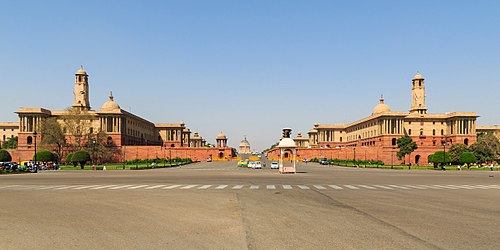
BILATERAL ISSUES
ALGERIA
APEDA in collaboration with Indian embassy organize virtual buyer seller meet for boosting agricultural and processed food products exports to Algeria, New Delhi, 24 June 2021.
In a bid to boost agricultural and processed food products exports, APEDA in collaboration with Indian embassy has organized a virtual buyer seller meet (VBSM) with Algeria where key stakeholders in the agricultural value chains from both the countries participated.
More than 100 participants including exporters, processors and traders of agricultural commodities from India and Algeria participated in the VBSM titled ‘Opportunities in Agri-sector between India and Algeria’ organized on Wednesday.
Due to the ongoing Covid19 pandemic, the export promotion programmes were not possible to be organized physically. APEDA has been organizing a series of VBSMs with various countries for providing platform to the exporters and importers.
In the VBSM held with trade and government officials from Algeria, the scope of increasing exports of India’s Geographical Indications (GI) certified agricultural products were discussed. Export potential of products including cereals, animal product, non-basmati and basmati rice etc to Algeria were discussed during VBSM.
Along with APEDA and Indian embassy officials, trade representatives including officials from All India Rice Exporters Association, The Rice Exporters Association, All India Food Processors Association, importers from Algeria including Sarl Agro Plast Compant, Eurl kbline, Haddadi Med Business Export and others participated in the VBSM. Source: Press Information Bureau (PIB).
IRAN
PM congratulates His Excellency Ebrahim Raisi on his election as President of Iran, New Delhi, 20 June 2021.
The Prime Minister, Shri Narendra Modi has congratulated His Excellency Ebrahim Raisi on his election as President of the Islamic Republic of Iran.
In a tweet, the Prime Minister said, "Congratulations to His Excellency Ebrahim Raisi on his election as President of the Islamic Republic of Iran. I look forward to working with him to further strengthen the warm ties between India and Iran." Source: Press Information Bureau (PIB).
PM congratulates His Excellency Naftali Bennett on becoming the Prime Minister of Israel, New Delhi, 14 June 2021.
PM expresses gratitude to His Excellency Benjamin Netanyahu for India-Israel strategic partnership
The Prime Minister, Shri Narendra Modi has congratulated His Excellency Naftali Bennett on becoming the Prime Minister of Israel.
In a tweet, the Prime Minister said, "Excellency @naftalibennett, congratulations on becoming the Prime Minister of Israel. As we celebrate 30 years of the upgradation of diplomatic relations next year, I look forward to meeting you and deepening the strategic partnership between our two countries. @IsraeliPM".
The Prime Minister also expressed his gratitude to His Excellency Benjamin Netanyahu for his leadership and personal attention to India-Israel strategic partnership.
The Prime Minister said, "As you complete your successful tenure as the Prime Minister of the State of Israel, I convey my profound gratitude for your leadership and personal attention to India-Israel strategic partnership @netanyahu." Source: Press Information Bureau (PIB).
3 Centres of Excellence established in Karnataka under Indo-Israel Agriculture project, New Delhi, 16 June 2021.
For taking forward the Israeli technologies in the field of Horticulture, Sh. B. S. Yediyurapp, Chief Minister, Government of Karnataka and Sh. Narendra Singh Tomar, Minister for Agriculture & Farmers Welfare, Government of India jointly inaugurated the 3 Centres of Excellence (COEs) established in Karnataka under Indo-Israel Agricultural Project (IIAP).
MIDH Division of Ministry of Agriculture & Farmer’s Welfare, Government of India and MASHAV - Israel’s Agency for International Development Cooperation - are leading Israel’s largest G2G cooperation, with 29 operational Centres of Excellence (COEs) across India in 12 States, implementing advanced Israeli Agro-Technology tailored to local conditions.
Out of these 29 fully functional COEs, 3 are from Karnataka, viz., COE Kolar for Mango, COE Bagalkote for Pomegranate and COE Dharwad for Vegetables. These Centres of Excellence generate knowledge, demonstrate best practices and train officers and farmers.
Sh. B. S. Yeddyurappa, the Chief Minister, Government of Karnataka thanked the Government of India and State of Israel for providing financial and technical assistance for establishment of these Centres of Excellence (COEs) under Indo-Israel Agricultural Project (IIAP) in Karnataka to transfer the innovative technologies for improving production, productivity and quality of horticulture produce in turn to achieve sustainability and improve economic status of the farmers”.
Shri Narendra Singh Tomar, Union Minister of Agriculture & Farmers Welfare said, “these Centres will help farming community of Karnataka to get access to the latest innovative Israeli technologies and adopting them to increase production and productivity which will help in increasing the farmers income. These COEs have the capacity of 50,000 grafts production and 25 lakh vegetables seedlings production annually. About 20,000 farmers have visited these COEs to gain knowledge about the modern cultivation practices in horticulture”.
Shri R. Shankar, Minister of Horticulture and Sericulture, Government of Karnataka said “there is a lot of scope for adoption of new technologies in crop production and post-harvest management to increase the production and productivity of the horticulture produce in Karnataka. To provide these latest technologies to the farmers, Government of India in collaboration with State of Israel has helped in establishment of these Centres of Excellence for Mango in Kolar, Pomegranate in Bagalkot and Vegetables in Dharwad under the Indo Israel Agriculture Project (IIAP). Karnataka farmers are very progressive to adopt innovative technologies developed by these centres. Ensuring increase in production, productivity by reducing input cost in turn increasing farmer's income”.
Dr. Ron Malka, H.E. Ambassador of Israel to India, Embassy of Israel said, “we are proud and excited to collaborate with the Government of Karnataka in agriculture, which is a significant part of the Indo-Israeli partnership. Today we inaugurated three different Centres of Excellence at a time when relations between our countries are strengthening and expanding rapidly. This is a milestone in the development of the State's agriculture sector, and will give local farmers a competitive edge in the national and International market. This will also enable them to double their income, aligned with the vision of Hon’ble Prime Minister ‘Shri Narendra Modi.”
The inauguration ceremony was also attended by Shri Sanjay Agarwal, Secretary, Department of Agriculture, Cooperation & Farmers Welfare, Government of India, Senior officers of Israeli Ministry of Foreign Affairs, Ministry of Agriculture & Farmer’s Welfare, Government of India and Government of Karnataka. The senior officers of all the State Horticulture Missions also joined to witness the virtual launch of the ceremony. Source: Press Information Bureau (PIB).
KUWAIT
Visit of Hon’ble External Affairs Minister, H.E. Dr. S. Jaishankar to Kuwait (June 09-11, 2021), Kuwait, 10 June 2021.
H.E. Dr. S. Jaishankar, External Affairs Minister, Republic of India, is currently on a visit to the State of Kuwait at the invitation of H.E. Sheikh (Dr.) Ahmed Nasser Al-Mohammad Al-Sabah, Minister of Foreign Affairs and Minister of State for Cabinet Affairs, State of Kuwait.
Coming within three months of the visit to India of H.E. Sheikh (Dr.) Ahmed Nasser Al-Mohammad Al-Sabah, Minister of Foreign Affairs and Minister of State for Cabinet Affairs, State of Kuwait, this visit by Dr. Jaishankar to Kuwait is part of the enhanced high level political exchanges in the context of 60th anniversary of establishment of Diplomatic Relations between India and Kuwait.
EAM called on His Highness Sheikh Sabah Khaled Al-Hamad Al-Sabah, Prime Minister of the State of Kuwait today morning. He handed over to him a letter from Hon’ble Prime Minister Shri Narendra Modi addressed to His Highness Sheikh Nawaf Al-Ahmed Al-Jaber Al-Sabah, Amir of the State of Kuwait. EAM thanked the leadership for Kuwait’s prompt supply of Liquid Medical Oxygen and other oxygen related supplies to India to fight the second wave of COVID-19 pandemic in India. Both sides discussed the state of bilateral relations and also the developments in the region.
EAM held delegation level talks with H.E. Sheikh (Dr.) Ahmed Nasser Al-Mohammad Al-Sabah, Minister of Foreign Affairs and Minister of State for Cabinet Affairs, State of Kuwait. The talks were also attended by H.E. Dr. Abdullah Issa Al Salman, Minister of Commerce and Industry. Both sides reviewed the entire gamut of bilateral relations and exchanged views on the regional developments and global issues. They also discussed the challenges posed by the devastating COVID-19 pandemic, the distress it caused to the humanity and reiterated their commitment to jointly fight the pandemic and address the myriad of issues that their citizens face such as travel restrictions and issues related to vaccination. The topics covered also included food security, cyber security, cooperation in the energy sector and issues related to the Indian workforce in Kuwait.
Both sides agreed to hold the first meeting of the India – Kuwait Joint Commission Meeting later this year and also to set dates for early meetings of the Joint Working Groups on Health, Hydrocarbon and Manpower. The two sides also agreed to set up new Joint Working Groups in other areas of cooperation.
Both Ministers welcomed the signing of the MoU for Cooperation on the Recruitment of Domestic Workers, which was signed in their presence by Ambassador of India to Kuwait Shri Sibi George and Deputy Minister for Foreign Affairs of Kuwait H.E. Mr. Majdi Ahmad Al – Dhafiri. The MoU brings the Indian Domestic Workers in Kuwait within the ambit of a legal framework which streamlines their recruitment and provides them with protection of law. It introduces an Employment Contract which ensures the rights and obligations of both the employer and the Domestic Workers including by endeavouring to establish a mechanism for 24 hours assistance to Domestic Workers. It provides for establishment of a Joint Committee for periodic review and assessment and to follow up the implementation of the MoU which will conduct annual meetings.
The joint celebrations of the establishment of the 60th anniversary of the establishment of diplomatic relations between India and Kuwait were launched at the meeting. The yearlong celebrations will continue through 2021-2022.
In the evening, EAM will chair a Round Table Conference of Ambassadors of India in GCC. Source: Embassy of India, Kuwait
Virtual Address by External Affairs Minister to the Indian Community in Kuwait (June 11, 2021), New Delhi, 12 June 2021.
Ambassador Sibi George, my fellow Indians, Friends of India in Kuwait.
I'm really very pleased to join you all this evening, as I conclude, what is my first ever visit to Kuwait. Many of you would have followed my programme, but I would like to share with you I was received very warmly. I had the privilege of calling on his Highness, The Prime Minister, I carried a letter from our Prime Minister to His Highness the Amir. I held talks with Foreign Minister Sheikh Ahmed, the Commerce Minister Dr. Abdullah also joined in those talks. And normally, as the Ambassador pointed out, an Indian Foreign Minister certainly won't go to a country and that to a country like Kuwait, without meeting the Indian community there. But we all understand that the present situation doesn't allow for a physical meet. So I'm very glad, Ambassador, that you've made the arrangements for me to at least interact virtually, with the community. And I certainly leave you all with the promise of a more direct contact the next time that I'm here.
Let me actually begin by talking to you about the discussions that I had with the Government of Kuwait, because I think as the Indian community living here, you have a legitimate interest in the matter. Some of it actually concerns your welfare as well. And you all know that for many years now, Kuwait has been a very important energy partner of India, a very substantial trade partner as well. But my visit, and my talks with Foreign Minister Ahmed were actually focused on how do we find new areas of cooperation, as keeping in mind both the immediate impact of the COVID, because I think all of us have learnt many things from the COVID experience, as well as the longer term changes which are happening, the growth in India's capacities, its influence, what you might call the rebalancing, in a way of the global order. And what does that really mean in practical terms for India and Kuwait? I think some of it we are seeing, even as we speak, I would say today, in an environment which is very dominated by COVID concerns, health issues have become very important for every society. In fact, we look at health very much today as part of our national security. And we discussed really, how we could work more closely. I think, last year, many of you would remember that we had sent out military medical team to be with the Kuwait health authorities as they coped with the COVID. We also supplied some Made in India vaccines earlier this year. So it's very clear with the kind of impact that this pandemic has made, with the expectation, that this is not a one of affair, but going to be something recurring, something we need to factor in. Clearly health is a big issue. Food Security is also another issue. Again, I think COVID has heightened concerns, there were anxieties expressed in Kuwait and in other Gulf countries, because many of them source their essential supplies, especially food from India. And I think you would know that we made exceptional efforts to ensure that the supply chain, the food supply especially was kept open, kept undisrupted through last year.
We also discussed education because I think people do see India today as not just a source of skills and talents but as a country, which is being very creative about growing its educational capacities. And again, during the COVID period, we've had a lot of exposure to distance education. But most of all, I think we focused heavily on the digital aspect, because the COVID has accelerated the digitization of our daily existence. We all do more online shopping. But I think there was a lot of interest in Kuwait to understand how, for example, our contact tracing was done through an app, how our vaccine registration is done through a portal, how, in fact, whether it is payment of money into the accounts of vulnerable sections of society, or providing rations for people, again during the time of COVID, how all of this was done using digital mediums and in a very seamless manner without any leakages. So the overall sense really was that, even as we deal with COVID, as we battle challenges to our health and to our social fabric, the experience has actually brought to forefront a new agenda in a way. And we have agreed on our joint commission, which Foreign Minister Sheikh Ahmad and I would be heading respectively, for our governments. And we certainly hope that it will provide us a platform to reimagine our ties in a more substantive way. Now, when Foreign Ministers meet, they, of course, typically also talk about the rest of the world. And here, I would say to you all that we greatly value the role of Kuwait in contributing to the stability of the Gulf. They have been very tireless and their diplomatic efforts dealing with various frictions in this region. And that is something which we have clearly been focused on, as well. In fact, the regional issues, were important enough that I used my presence in Kuwait to actually hold a larger meeting of our ambassadors in the Gulf so we had a much more integrated discussion on how do we approach the Gulf in the new circumstances, what are the challenges here, and there are many common issues which the Indian community in the Gulf also faces and I will speak to you about that as well, briefly.
Since I was speaking about the COVID, and I mentioned to you that we had sent the medical team and also ensured the food provision. I think it would be right for me also to bring out the importance of the effort that Kuwait has made, in fact, is still making as we speak, in terms of providing medical oxygen to India. You all know that we had a very severe second wave, nationally, of COVID. The variants in question were exceptionally virulent. So even though people had debated and modelled what could be a second wave, I think the reality was far bigger. It was more than four times what the first wave of the COVID was. And one of the immediate implications of that was really a large number of people who were in hospital with respiratory issues, who required oxygen, and in fact, the demand for medical oxygen went up from more than 1000 metric tonnes which is what it was last year, to 8000, almost 9000 metric tonnes. And we of course, expanded our own capacities nationally. But it was very helpful for us to get oxygen supplies from abroad. And among the countries which actually took the lead, I would particularly single out Kuwait in this regard, they provided us more than 500 metric tonnes, and they're very prompt and very efficient in that regard. So, to me, it is actually a proof that international partnerships and cooperation, these are not just phrases, they actually make a difference when countries face challenges and what we have done for each other during the COVID period, to my mind is a very good example of the trust and confidence but also the new vistas of cooperation that today we need to address. Having said that, since I had all the Gulf ambassadors here, you know that, for us the Gulf is a very special region. It's a special region, it's our extended neighbourhood of course, it's the source of a lot of our energy supplies. But most of all, it's a special region because of the Indian diaspora, all of you make the difference. And since the Modi Sarkar came into power, a signature theme of the government has been to recognise and appreciate the contribution that the diaspora has made worldwide. And while we have a worldwide diaspora in terms of the numbers and the importance and the salience of the diaspora, I think you cannot find a better example than in the Gulf and in the Gulf, the Indian community in Kuwait, all of you, you are among the oldest, the most well established and as I could see, in my interactions with the Kuwaiti leadership, also I would say among the very respected diasporas.
Now, we discussed among the ambassadors, as well as my own discussions with the Kuwaiti government, what needs to be done to meet the concerns of the Indian community, the Indian community today, in the immediate aftermath of the COVID, but also the slightly longer term requirements, for example, of education. And my instructions to all the ambassadors was that they need to focus even more, and I must say, they've really done a splendid job in the last year and a half, but focus even more on the welfare of the Indian community, to ensure that the disruptions in family because in many cases, family members went back to India, they've not been able to come back, that to facilitate the early reunion, to ensure that those who temporarily or otherwise did not retain their jobs out here, how can they come back or how do we create conditions and facilitate their return. And to do all that, of course, we need to have flights coming in from India. These as in many cases have been temporarily suspended because of COVID. So as the numbers go down, I obviously would like very much to see a resumption of flights. And definitely, I think this situation has also opened up opportunities for our businesses, for more exports to this region, and for a role for the Indian community, in enhancing the economic contacts between us.
I was particularly pleased to that matter which has been long pending, which is an MOU, relating to our domestic workers here. That was finalised and signed by the ambassador and the Kuwaiti official, which in many ways streamlines and strengthens the position of our workers in Kuwait. I think that's a very important step, which would certainly encourage a greater Indian presence in Kuwait. So, as you can see, though I've been here really, two days, it's been busy, it has been very productive. Again as I said, I wished I had the opportunity to spend time physically with all of you. But before I actually conclude my remarks, and listen to all of your concerns and issues, let me very briefly touch upon what is happening at home, because I think you would all be naturally concerned at the news you get, often this is put across in a way in which those who are not in India may worry about the direction of events out there. I think it's clear by now that the second wave of the COVID has started to definitely deceit, the numbers, the daily numbers, you can see of people who are newly infected is now one quarter, 25% maybe even less than what it was in the peak in early May, the positivity rate has also come down very dramatically in most population centres. And a large part of that has been made possible by a very, very vigorous government response to the second wave. I can tell you that as someone who's been in government for many decades now, the kind of effort and energy that I saw, the long hours that people put in, people really moved mountains to respond to what was an unprecedented situation. We were talking about oxygen, we ran really hundreds of oxygen trains to ferry oxygen from the production centres to the major cities, all our planes were mobilised including the Air Force planes for the oxygen cylinder tanks to be moved, both within the country and from abroad to India. We procured medicines which were essential for COVID treatment, many of them from abroad. We also ensured that the domestic production of medicines was enhanced. And, of course, where the vulnerable sections were concerned, many of you would know that we've actually ensured that as many as 800 million people get rations from the government and 400 million people have actually got funds put into their account in terms of support. Vaccination is of course, a big issue. Again, it has picked up, we are currently vaccinating more than 3 million a day. Our expectation is that this will go up as the vaccine production increases. We have cumulatively vaccinated about 245-246 million so far. And the confidence is there, that as more vaccine comes into production, as the production of even the existing vaccine scales up, that as the year progresses, we will actually be able to vaccinate all our people. Along with the health situation of course, there is a natural worry, what is the state of the economy and there I want to share with you that the picture has been quite confident in some ways, we saw a strong recovery in the early months before the second wave. But during the second wave actually, the lockdowns have been local, interstate traffic, interstate movement has not been disrupted at all, I think a lot of the logistics has kept going. So, there is a sense that the economic impact of the second wave would be far less than what happened last year. So, the belief we have that India will pick up, that India will recover rapidly, that what we have seen in the last few years as the steady rise of India and its economy and its influence in the world, that would continue. So as I conclude, I want to come back to all of you because while I have appreciated what the Government of Kuwait did, I particularly want to emphasise that we very much recognise what the Indian community in Kuwait did. I know that many of you have helped to acquire oxygen cylinders; it is both the practical relevance of what you did as well as the feeling for your motherland, which this expresses, that is deeply appreciated by us. So, I thank you here.
And I want to finish by highlighting that the Indian community in many ways defines India abroad, the contribution you make, the respect you earn, the support that you provide, the bridge, in a sense that you constitute, I think this is really what makes India's interaction with the world rather unique. And as I said, it is something which the Prime Minister and all of us who are part of his government, definitely recognise and appreciate deeply. I'm confident that you will continue to be that effective bridge even as our relationship with Kuwait expands. And that you will keep the Indian flag flying high here. And as we have seen, whether it is tough times or good times, you will always be there for us. So once again, I thank you for listening to me. And I'd be delighted to get your sense of the relationship and your sense of what the concerns of the community are, and you can be assured that we will always keep it very close to our heart.
Thank you very much. Source: Ministry of External Affairs (MEA).
UAE
Exotic dragon fruit or Kamalam from Maharashtra exported to Dubai, New Delhi, 26 June 2021.
In a major boost to export of exotic fruit, a consignment of fibre and mineral rich ‘Dragon Fruit’, also referred as Kamalam, has been exported to Dubai. A consignment of Dragon Fruit for exports was sourced from the farmers of Tadasar village, Sangli district, Maharashtra and it was processed and packed at APEDA recognized exporter – M/s Kay Bee.
Scientifically referred to as Hylocereusundatus, the dragon fruit is grown in countries such as Malaysia, Thailand, the Philippines, the USA and Vietnam.
Dragon fruit production commenced in India in early 1990s and was grown as home gardens. Dragon Fruit has become increasingly popular in recent years in the country as it has been taken up for cultivation by farmers across various states.
At present, dragon fruit is grown mostly in Karnataka, Kerala, Tamil Nadu, Maharashtra, Gujarat, Odisha, West Bengal, Andhra Pradesh, and Andaman and Nicobar Islands. The cultivation requires less water and can be grown in various kinds of soils. There are three main varieties of dragon fruit: white flesh with pink skin, red flesh with pink skin, and white flesh with yellow skin.
Prime Minister Shri Narendra Modi in ‘Mann Ki Baat’ programme in July 2020 on All India Radio had mentioned about the dragon fruit farming in the arid Kutch region of Gujarat. He had congratulated the farmers of Kutch for the cultivation of fruit for ensuring India’s self-sufficiency in the production.
The fruit contains fibre, vitamins, minerals, and antioxidants. It can help in repairing the cell damage caused by oxidative stress and reduce inflammation, and also improving the digestive system. Since the fruit has spikes and petals resembling lotus, it is also referred as ‘Kamalam’.
APEDA promotes exports of agricultural & processed food products by providing assistance to the exporters under various components such as Infrastructure Development, Quality Development and Market Development. Apart from this the Department of Commerce also supports exports through various schemes like Trade Infrastructure for Export Scheme, Market Access Initiative etc. Source: Press Information Bureau (PIB).
APEDA facilitated exports of Burmese grapes ‘Leteku’ to Dubai, New Delhi, 28 June 2021.
In a major boost to harness the export potential of agricultural and processed food products from north-eastern states, a shipment of fresh Burmese grapes referred as ‘Leteku’ in Assamese language has been exported to Dubai from Guwahati by air route.
A consignment of Leteku, which contains vitamin C and Iron, was sourced and packed at a collection centre in Darang district of Assam. Consignment was exported by APEDA registered Kiega EXIM Pvt Ltd from Guwahati airport to Dubai via Delhi.
APEDA has been carrying out promotional activities to bring the North-Eastern states on the agricultural and processed food products export map of India.
Recently, APEDA facilitated exports of the first consignment of ‘red rice’ to the USA from Assam. Iron rich ‘red rice’ is grown in Brahmaputra valley of Assam, without the use of any chemical fertilizer. The rice variety is referred to as ‘Bao-dhaan’, which is an integral part of Assamese food.
APEDA assisted in exports of Geographical Indications (GI) certified Kaji Nemu (Assam lemon) to London. So far around 40 metric tonnes of Assam Lemon has been exported.
Jackfruits sourced from the Tripura based Krishi Sanyoga Agro Producer Company Ltd was exported to London. The consignment was packed at APEDA assisted pack-house facility of Salt Range Supply Chain Solution Ltd and exported by Kiega EXIM Pvt Ltd.
APEDA has provided financial assistance to the private sector to set up a pack house at Guwahati which has fulfilled the mandatory requirement or infrastructure for export of fresh fruits and vegetables to Europe.
APEDA undertakes market promotion activities for evolving structured marketing strategies for export of food products, market intelligence for taking informed decisions, international exposure, skill development, capacity building and high-quality packaging.
APEDA would continue to focus on the north-eastern region both in terms of capacity building, quality upgradation, and infrastructure development. Linking buyers to farmers, strengthening the entire supply chain of agricultural produce from the north-eastern region would bring in dividends. Source: Press Information Bureau (PIB).
PERMANENT MISSION OF INDIA TO THE UN
UNSC briefing on Syria (Chemical Weapons), Statement by Ambassador T.S. Tirumurti, Permanent Representative of India to the United Nations, New York, 03 June 2021.
Mr. President,
Let me begin by thanking Under Secretary General and High Representative for Disarmament Affairs Izumi Nakamitsu and DG-OPCW Fernando Arias for their briefings.
2. We have noted the contents of the latest report by DG-OPCW on “the progress in the elimination of the Syrian Chemical Weapons Programme” published on 25th May 2021. The report highlights the outstanding issues in the implementation of declaration and destruction obligations of Syria under the Chemical Weapons Convention as well as the possible use of chemical weapons.
3. India views the Chemical Weapons Convention as a unique, non-discriminatory disarmament instrument which serves as a model for the elimination of an entire category of weapons of mass destruction. India attaches high importance to the Chemical Weapons Convention, and stands for its full, effective and non-discriminatory implementation. It is important to maintain the credibility and integrity of this Convention.
4. Further, India is against the use of chemical weapons by anybody, anywhere, at any time and under any circumstances. India has consistently maintained that any investigation into the use of chemical weapons must be impartial, credible and objective, following scrupulously the provisions and procedure embedded in the Convention, and in conformity with the delicate balance of power and responsibility enshrined under it to establish facts and reach evidence-based conclusions. We again ask OPCW to follow these parameters scrupulously.
5. We encourage Syria to continue engagement and cooperation with the OPCW to resolve all pending issues expeditiously. We hope that the next round of Declaration Assessment Team (DAT) related consultations will take place soon.
6. India has been cautioning about the possibility of chemical weapons falling into the hands of terrorist entities and individuals. The latest report of UNITAD refers to the repeated successful deployments of chemical weapons by ISIL against civilian populations between 2014 and 2016. This is a cause for serious concern and needs to be fully recognized and acted upon, given that the core area of operations of ISIL has been both Syria and Iraq. It is deeply concerning that the involvement of external actors in Syria has given a fillip to the growth of terrorism in the country and in the region. We are concerned at the frequent reports of the resurgence of terrorist groups in the region. The international community cannot afford to ignore terrorist activities in Syria and the region.
7. Lastly, Mr. President, India has consistently called for a comprehensive and peaceful resolution of the Syrian conflict through a Syrian-led dialogue, taking into account the legitimate aspirations of the people of Syria, facilitated by the United Nations, in line with Security Council resolution 2254. We note the results of the recent Presidential elections in Syria, which falls within their sovereign purview. We reiterate our support for UN-led efforts for finding an expeditious resolution to the decade long conflict in Syria.
I thank you, Mr. President. Source: Permanent Mission of India to the UN.
UNSC monthly meeting on Yemen, India Statement by Mr. R. Ravindra, Deputy Permanent Representative & Political Coordinator, New York, 15 June 2021.
Thank you, Mr. President.
I join other colleagues in thanking Special Envoy Martin Griffiths for his efforts over the last few years to secure peace in Yemen. We look forward to working with him in his new role as the Head of UN Humanitarian Affairs. I also thank Under Secretary General Mark Lowcock and Ms. Najiba Al-Najar for their briefings.
2. The ongoing fighting in several parts of Yemen, including the continued attacks in Marib by Ansarallah, has undermined the prospects for peace in the country. Despite intense regional and international diplomatic efforts, including by the UN, a breakthrough to end hostilities has unfortunately not yet been achieved. With every passing day, the human toll of the conflict, especially among Yemeni children, is increasing, as witnessed recently during the attacks in Marib city.
3. We call on all parties to the conflict in Yemen to take concrete steps towards de-escalation to avoid further suffering of the Yemeni people. It is clear that there cannot be a military solution to the conflict. Prolonging the hostilities will not benefit anyone, except terrorist groups like Al-Qaeda, who will exploit the situation for their own benefit, thereby further aggravating the humanitarian and security situation.
4. We are also witnessing the resumption of attacks arising out of Yemen on commercial ships navigating the Red Sea and the Gulf of Aden. India is deeply worried by this trend, which threatens not only the safe passage of commercial vessels but also maritime security in the region as a whole. We also condemn the cross-border attacks on critical civilian and energy infrastructure in Saudi Arabia, which threaten regional security and stability. A strict implementation of the arms embargo envisaged in resolution 2216 and its effective monitoring is necessary to eliminate such threats in the future.
Mr. President,
5. There is no long-term solution to the humanitarian crisis in Yemen without ending the conflict. A nationwide ceasefire is the starting point for a full cessation of hostilities and India strongly supports all efforts to achieve such a ceasefire.
6. Restrictions on the flow of essential commodities into Yemen and impediments to internal movement of humanitarian aid are also exacerbating the humanitarian crisis. We appreciate the recent clearances issued by the Government of Yemen to fuel ships to enter Hudaydah port which will ease the pressure on availability of fuel in Yemen. A sustainable solution to this issue, which also addresses the proper handling of oil related revenues, is an urgent requirement.
7. The 2021 Humanitarian Response Plan for Yemen is only 43% funded. The lack of funding for humanitarian agencies would result in scaling down or termination of the aid operations soon. We commend OCHA’s emergency funding response to fill gaps in the delivery of critical aid, particularly to those displaced in Marib and Al Jawf. However, a more durable solution through sustained donor funding is required to enable the continuation of life-saving humanitarian operations.
8. The FSO Safer issue remains unresolved and we urge Ansarallah to provide early access and facilitation to the UN to inspect the vessel and conduct any essential repairs without further delay.
Mr. President,
9. A peaceful resolution of the conflict in Yemen hinges on the political will of the conflicting parties themselves. The countries in the region have a major role to play in influencing Yemeni parties to stop the fighting and pursue initiatives for peace and reconciliation. The full implementation of the Riyadh and Stockholm Agreements will also contribute to stability and peace in Yemen.
10. This Council should send a strong and clear signal on the need to cease violence and commence political negotiations. India fully supports a Yemeni-led and Yemeni-owned political process, with meaningful participation of women, for achieving an inclusive and peacefully negotiated settlement to the conflict.
I thank you, Mr. President. Source: Permanent Mission of India to the UN.
Extraordinary Ministerial meeting (VTC) of the NAM Committee on Palestine, Statement by Ambassador T.S. Tirumurti, Permanent Representative of India to the United Nations, New York, 22 June 2021.
Mr. Chairman,
I thank you for convening this extraordinary Ministerial meeting of the NAM Committee on Palestine.
2. Let me begin by expressing our solidarity with the people of Palestine in their peaceful struggle for establishing an independent, viable, democratic State of Palestine. India firmly believes that there is no alternative to a two-State solution, which can deliver meaningful and enduring peace.
3. The situation in East Jerusalem and other Palestinian territories has been the focus of the UN since last month. The cycle of violence that resulted in the loss of precious human lives, including an Indian national, was halted with a ceasefire brought by concerted efforts and assurances of the international community. As a member of the NAM caucus in the Security Council, during the Security Council meetings, India called for an immediate de-escalation, urged both sides to show extreme restraint and desist from actions that exacerbated tensions. We expressed our deep concern over violence in Jerusalem, especially during the holy month of Ramadan, and the possible legal eviction of Palestinian residents in the Sheikh Jarrah and Silwan neighbourhoods in East Jerusalem. We reiterated these apprehensions during the General Assembly special session on Palestine. We have also underlined the need to respect the historic status-quo in East Jerusalem and its neighbourhoods during these meetings.
4. Despite the intense diplomatic efforts in recent weeks, the situation in East Jerusalem continues to remain tense. The resumption of hostilities in Gaza is also a worrying sign. All parties must honour the ongoing efforts to firm up the ceasefire arrangement, so as to ensure that relative calm is restored. We urge all parties to refrain from all acts of violence, provocation, intimidation and incitement. Any attempt to unilaterally change the status-quo undercuts the efforts to advance a negotiated two-State solution.
Mr. Chairman,
5. Delivery of humanitarian assistance to the Palestinian civilian population, particularly in Gaza, and ensuring the smooth flow of humanitarian aid into Gaza through verified channels should be prioritized, as also the rehabilitation and reconstruction of Gaza. We recognize the centrality of the Palestinian Authority for delivering international assistance to the Palestinian people. We encourage all Palestinian parties to put their differences aside and work with the Palestinian Authority to ensure the well-being of the people of Palestine. We welcome the role of the regional actors, especially Egypt and Jordan, in facilitating this reconciliation.
6. On our part, India continues to support Palestinian nation-building efforts under the India-Palestine developmental partnership, which cover wide-ranging sectors like health, education, women empowerment, technology etc. We are also supporting grass-root Palestinian institutions in their developmental initiatives. We have been assisting Palestine in its fight against the pandemic through the supply of essential medicines and COVID-19 vaccines. We are also supporting UNRWA’s activities.
Mr. Chairman,
7. The current developments in Palestine have once again underscored the need for immediate resumption of direct negotiations between Israel and Palestine to resolve all final status issues. India stands ready to support all diplomatic efforts, especially by the Quartet, which are aimed at strengthening the collective commitment of the international community to resume these negotiations and facilitate the peace process.
I thank you. Source: Permanent Mission of India to the UN.
UNSC briefing/consultations on Syria (humanitarian), India statement delivered by Mr. Prakash Gupta, Joint Secretary, Ministry of External Affairs, India, New York, 23 June 2021.
Let me begin by thanking Secretary General for his remarks. I also thank Acting USG Mr. Ramesh Rajasingham for his update on the humanitarian situation in Syria. I thank Ms Sherine Ibrahim of CARE for providing us with the insights into the challenges from the perspective of civil society.
2. As we hear these briefings regularly, it is abundantly clear that the decade long violence and terror has caused devastating impact on the lives of Syrians. More than 11 million people across Syria are in need of humanitarian assistance of one form or the other. Syrian women, children and elderly have been impacted in disproportionate ways. The displaced population and those who have chosen to return to their homes are facing a grim situation across Syria. The worsening exchange rate, increasing cost of food, and fuel shortages are affecting both the population and humanitarian operations as well. The presence of foreign forces and external support to armed groups is only making the situation worse.
3. The pandemic and the adverse impact of sanctions on the health facilities and humanitarian operations have further exacerbated the situation. Both the Secretary General and OCHA have repeatedly spoken about their impact on humanitarian operations. These measures need to be reviewed so as to ensure that the country’s capacity to access and absorb humanitarian assistance and medical support is not hindered. We are encouraged by the ongoing technical dialogue between relevant Member States and humanitarian actors on this issue.
4. We have been calling for enhanced and effective humanitarian assistance to all Syrians throughout the country without discrimination, politicization or any preconditions. What we need immediately is an active engagement that is consistent with sovereignty, independence and territorial integrity of Syria and that addresses the urgency of the humanitarian issues to alleviate the suffering of the Syrian people. We need concrete steps to address hurdles that are obstructing the functioning of both cross-border and crossline operations; especially as we are barely two weeks away from the mandate renewal deadline for the humanitarian aid mechanism Resolution.
5. While the Council’s attention is focused on mandate renewal, terrorist groups such as Hayat Tahri al-Sham and Islamic State in Iraq and Levant are attacking civilians, in rural Idlib and Hama and in the northeast of Syria. The infighting among armed groups in the region has continued to endanger civilians. The fighting along the frontlines in the northwest is threatening the lives of civilians and hospitals. India strongly condemns the attacks on 12 June on Al Shifaa Hospital in Afrin city in northern Syria.
6. Moreover, we cannot turn a blind eye to the issue of presence of 8800 third country nationals, including women and children in Al-Hol camp. This issue needs to be addressed with all seriousness.
7. On the positive side, we are happy to note deliveries of vaccines from the COVAX facility to Syria, including in the North-West. The supplies from COVAX should cover around 1/5th of the population. Though grossly inadequate, it is still a vital first step to protect medical workers and those most vulnerable.
8. We note that some countries from Europe and the Middle East have started to re-establish their diplomatic presence in Syria. We welcome re-establishing formal channels of communication. This will help to bring the dire humanitarian situation into sharper focus, especially for the international donor community. We would also like to flag the need for undertaking rehabilitation and reconstruction measures as well.
9. On the bilateral front, India has extended developmental assistance and human resource development support to Syria through provision of lines of credit for industrial and infrastructure projects, supply of medicine and food, organization of artificial limb fitment camps and capacity building training programs.
10. To conclude, India reiterates its steadfast commitment to supporting the people of Syria in these difficult times. I thank you Mr. President. Source: Permanent Mission of India to the UN.
UNSC briefing/consultations on Syria [Political], INDIA STATEMENT by Mr. Prakash Gupta, Joint Secretary (UNP), Ministry of External Affairs, New York, 25 June 2021.
Allow me to begin by thanking Special Envoy Geir O. Pedersen for his comprehensive briefing.
2. As things stand presently, the political track has not moved any further since our last discussion in the Council on 26 May.
3. The UN-facilitated Constitutional Committee process has an onerous task of preparing and drafting for popular approval, a constitution, which will contribute to the political settlement in Syria and the implementation of Resolution 2254 (2015). However, there has not been much progress since its establishment in September 2019.
4. We call upon all sides to remain engaged in discussions on the ‘bridging proposal’ put forth by the Special Envoy in April. We have noted the update on Deputy Special Envoy Ms. Khawla Matar’s recent engagements in Damascus. We hope that the Special Envoy will succeed in bringing about an understanding among all the three groups on the work plan and methodology, paving the way for convening the sixth meeting at the earliest opportunity.
4. Let me reiterate once again that for the UN-led political track to move forward, we need cooperation from all major stakeholders in the conflict. The political transition in Syria facilitated by the UN is not an exclusive process. The stakeholders need to bridge existing divides by focusing on measured incremental positive steps. They need to review their long-entrenched positions, act collaboratively and strengthen the hands of the Special Envoy and thereby give a collective push to the UN-led political track. We believe this can be realized if all parties agree to work together in good faith and their sponsors do not interfere.
5. The recent attack on the hospital in Afrin city in northern Syria underscores the need for a nationwide comprehensive ceasefire. We condemn the attack on hospital and killing of innocent civilians. Across the country, including in north-western Syria, fighting along the frontlines has continued in one form or the other, putting the lives of innocent civilians in jeopardy. It is also a matter of concern that the fundamental principles of international law, such as non-interference in the internal affairs of States, respect for territorial integrity and independence have been repeatedly violated in Syria. The presence of foreign forces and the support to armed groups have led to an extremely dangerous situation in Syria.
6. India remains deeply concerned that the involvement of external actors in Syria has given a fillip to the growth of terrorism in Syria and in the region. We urge the international community to reflect on this aspect of the Syrian conflict with all earnestness. We need to be consistent in strongly condemning terrorism. The latest 60day report of the Secretary General on the humanitarian situation mentions about the attacks carried out by the Hay’at Tahrir al-Sham (HTS), a designated terrorist group and the Islamic State in Iraq and the Levant (ISIL). The latest report of UNITAD also refers to the repeated use of chemical weapons by ISIL against civilian populations between 2014 and 2016. The reports of presence of mercenaries from Syria in Africa is equally worrying. It is imperative that all parties adhere to their international obligations to fight terrorism and terrorist organizations in Syria, as designated by the Security Council. We would like to hear Special Envoy’s views on the upcoming meeting of anti-ISIL coalition in Rome, where he is slated to participate.
7. Lastly, India firmly believes that long-term security and stability of this region can only be achieved by preserving the sovereignty and territorial integrity of Syria. We also remain convinced that there can be no military solution to the Syrian conflict and reaffirm our commitment to advancing a Syrian-led and Syrian-owned UN-facilitated political process in line with the UN Security Council Resolution 2254.
I thank you Mr. President. Source: Permanent Mission of India to the UN.
MULTILATERAL ISSUES
The first Arab-India Energy Forum (June 8-9, 2021), New Delhi, 09 June 2021.
1. The first edition of the Arab-India Energy Forum (AIEF) was held in a virtual format on 8-9 June 2021 under the co-chairship of India and the Kingdom of Morocco. The event was in implementation of the Executive Programme of the Arab-India Cooperation Forum (AICF) and the decision of the third meeting of the Senior Officials of India and the League of Arab States (LAS) held virtually on 12 January 2021.
2. The inaugural session of the Forum was addressed by H. E. Shri R. K. Singh, Minister of State (Independent Charge) for Power, New & Renewable Energy of India; H. E. Mr. Aziz Rabbah, Minister of Energy, Mines and Environment of Morocco; and H.E. Dr. Kamal Hasan Ali, Assistant Secretary General for Economic Affairs of the LAS. The subsequent plenary sessions explored potential and challenges of cooperation in the fields of energy transition, intra-regional power trading, hydrocarbons and nuclear power generation. The panellists were drawn from a wide range of public and private sector institutions from India and LAS member states as also key regional organisations such as the Organisation of Arab Petroleum Exporting Countries (OAPEC) and Arab Atomic Energy Agency (AAEA).
3. The Forum witnessed exchange of knowledge, expertise and best practices in the fields of energy efficiency programmes for different economic sectors, accelerated development of new & renewable energy, fostering regional power sharing arrangements, enhanced oil recovery, tight gas extraction, and safe nuclear power generation etc. There was also discussion on respective national regulatory policies governing these sectors, investment opportunities as well as R&D and training collaboration possibilities.
4. The experts noted that even as India and several LAS member states strived to transition towards clean and green energy economies, their reliance on hydrocarbons will likely continue in the near future.
5. In conclusion, the participants conveyed their sincere appreciation to the two Ministers for their co-chairship and gracious patronage of the Forum, and also thanked the General Secretariat of the LAS for their excellent coordination in putting together a substantive programme.
6. They agreed to convene the second edition of the AIEF in India during the year 2023. Source: Ministry of External Affairs (MEA).
As part of the policy, the MEI@ND standardizes spellings and date format to make the text uniformly accessible and stylistically consistent. The views expressed here are those of the author and do not necessarily reflect the views/positions of the MEI@ND. Editor, MEI@ND P R Kumaraswamy
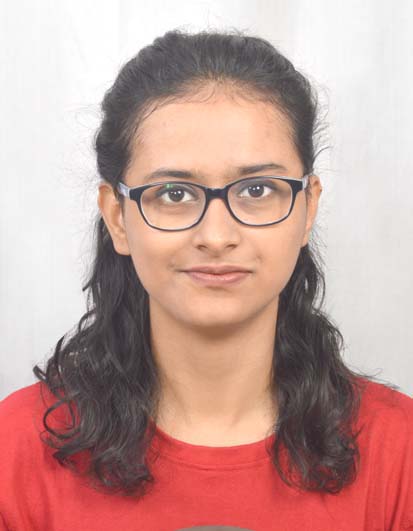
Ankita Sanyal is a doctoral candidate at Centre for West Asian Studies, Jawaharlal Nehru University, New Delhi. She worked as a summer intern at National Human Rights Commission, New Delhi in 2014 and participated in Global Initiative for Academic Networks, lecture on “Jerusalem and Abrahamic Faiths throughout the Ages” (November 2016); ICSSR-sponsored workshop on “Research Methodology Workshop in Social Sciences” (February 2019); and workshop on “Second Intensive Course on Women’s Studies in Islam and Iran” at the University of Religions and Denominations, Qom, Iran (August 2019). She currently has many publications and has presented papers in national and international conferences. She received certificate on completion of Level Two Persian Language course. Her area of interest includes minority studies, gender studies, cultural studies, education, peace and conflict studies.
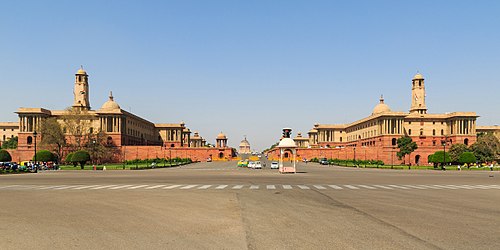
BILATERAL ISSUES BAHRAIN The CEO of LMRA highlights details on the new labour market reforms, .....
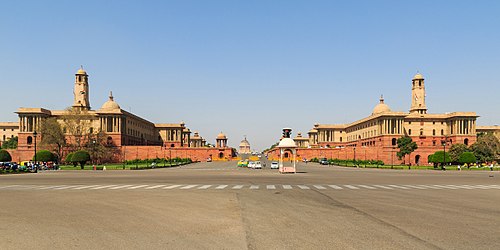
BILATERAL ISSUES EGYPT Raksha Mantri Shri Rajnath Singh to visit Egypt from September 19-20, 2.....
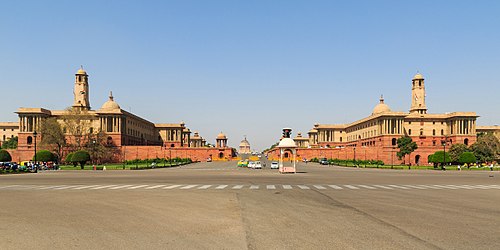
BILATERAL ISSUES IRAN Shri Sarbananda Sonowal visits Chabahar Port in Iran to Review work prog.....
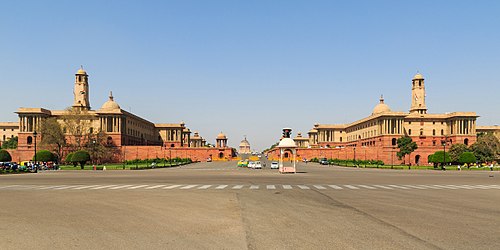
BILATERAL ISSUES BAHRAIN Deputy Chief of Naval Staff, India visits Kingdom of Bahrain, Manama,.....
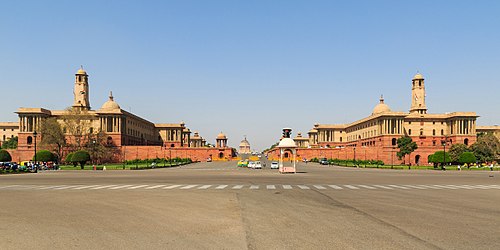
BILATERAL ISSUES BAHRAIN Buyer Seller Meet on Indian coffee between Indian exporters and Bahra.....
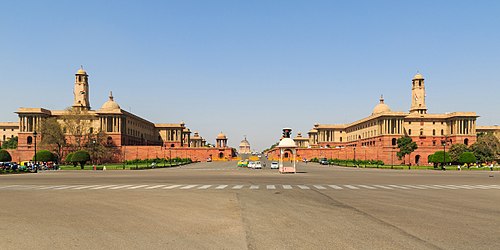
BILATERAL ISSUES BAHRAIN B2B meeting and Networking event between Bahraini & Indian IT com.....
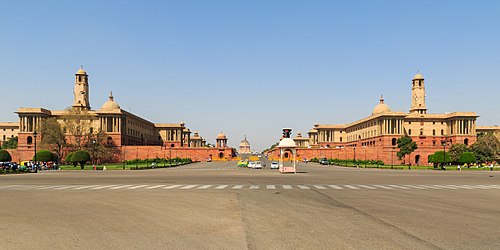
BILATERAL ISSUES OMAN Community Service Fortnight / Sewa Utsav’: ‘Celebration Thro.....
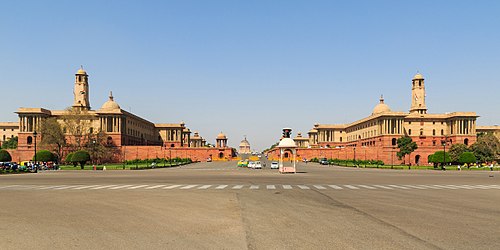
BILATERAL ISSUES BAHRAIN Virtual Buyer Seller Meet on agriculture and food products between In.....
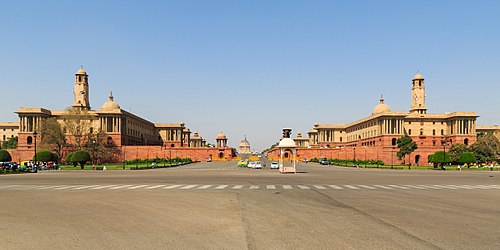
BILATERAL ISSUES BAHRAIN PM speaks on telephone with His Royal Highness Prince Salman bin Hama.....
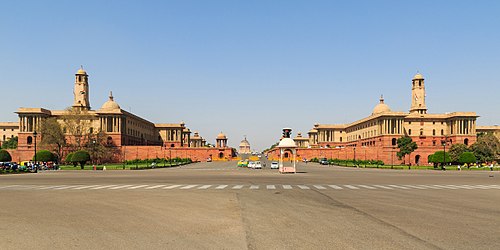
BILATERAL ISSUES ISRAEL Experts from India and Israel suggested expanding scope of India-Israe.....
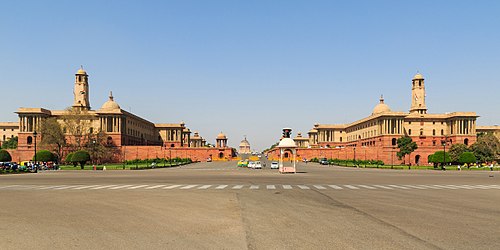
BILATERAL ISSUES BAHRAIN Press Release on virtual meeting between Minister for Education and S.....
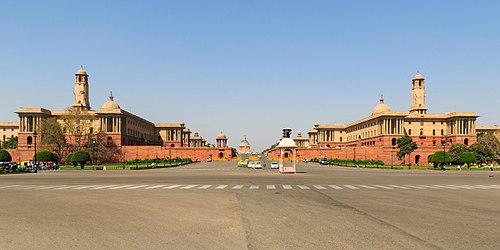
BILATERAL ISSUES BAHRAIN Ambassador’s visit to India Pavilion of Jewellery Arabia, Bahra.....
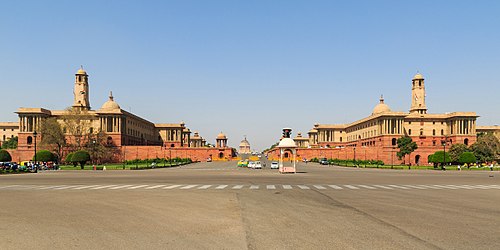
BILATERAL ISSUES BAHRAIN First consignment of GI tagged sweet dish Mihidana from West Bengal e.....
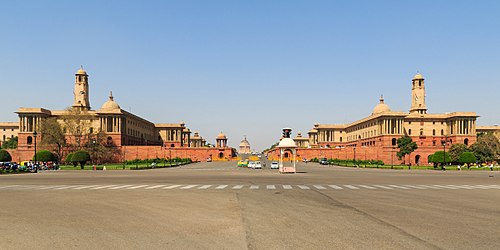
BILATERAL ISSUES ALGERIA Visit of Shri V. Muraleedharan, Minister of State for External Affair.....
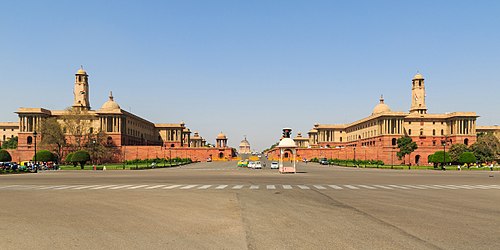
BILATERAL ISSUES ALGERIA INS TABAR undertook a bilateral Passage Exercise (PASSEX) with Algeri.....
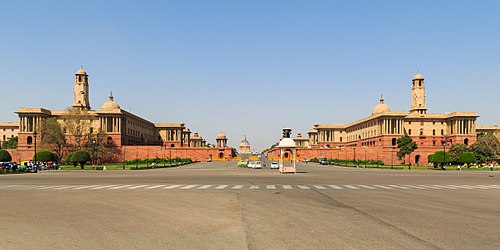
BILATERAL ISSUES BAHRAIN India expands mango export footprint to newer countries; GI certified.....
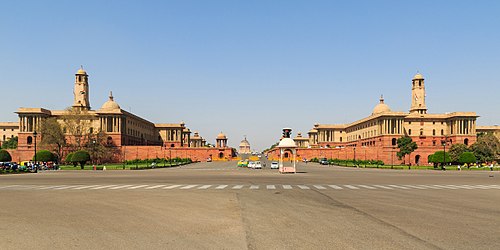
BILATERAL ISSUES EGYPT Procurement of 300,000 doses of Remdesivir from M/s EVA Pharma, Cairo, .....
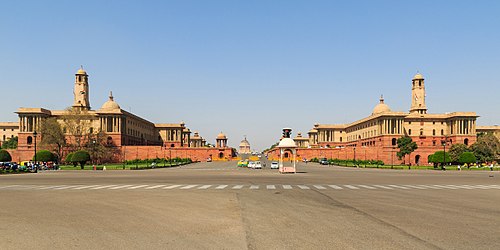
BILATERAL ISSUES BAHRAIN Third India-Bahrain High Joint Commission Meeting, New Delhi, 07 Apri.....
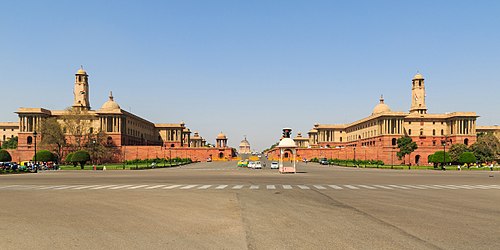
BILATERAL ISSUES BAHRAIN Indian Naval Ship Talwar’s Port Visit to Bahrain, Manama, 18 Ma.....
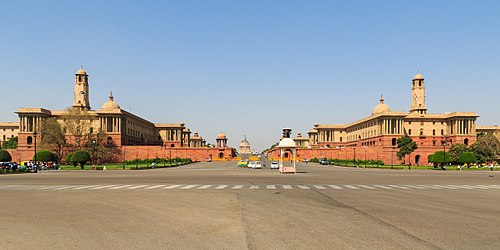
BILATERAL ISSUES IRAN Unstarred Question No.1475, Chabahar-Zaheden Railways Line, Lok Sabha, 1.....
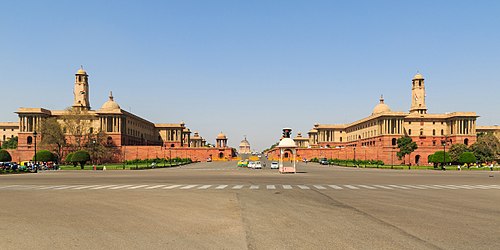
BILATERAL ISSUES IRAN Government of India strengthens cargo handling capacity of Chabahar Port.....
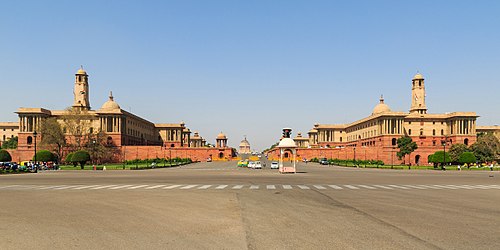
BILATERAL ISSUES BAHRAIN Warm greetings from Indian leadership on the occasion of Bahrain&rsqu.....
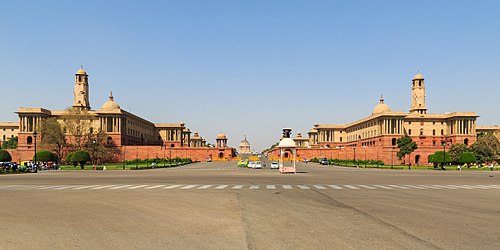
BILATERAL ISSUES BAHRAIN Prime Minister condoles the passing away of His Royal Highness Prince.....
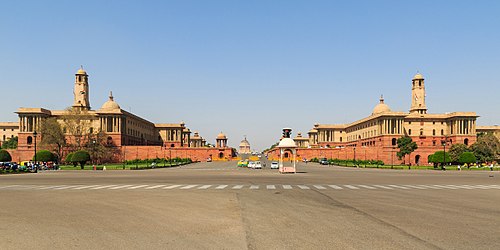
BILATERAL ISSUES BAHRAIN A B2B Webinar on Enhancing Opportunities in Pharmaceuticals and Alter.....
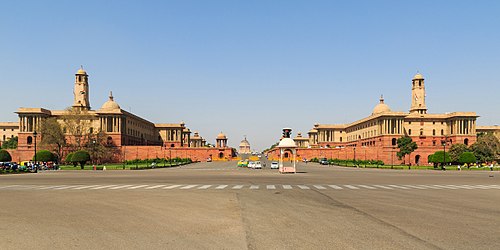
BILATERAL ISSUES IRAN Raksha Mantri Shri Rajnath Singh holds meeting with Iran's Minister .....
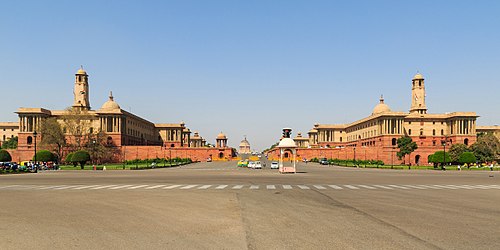
BILATERAL ISSUES ISRAEL Statement by the Official Spokesperson on the full normalisation of re.....
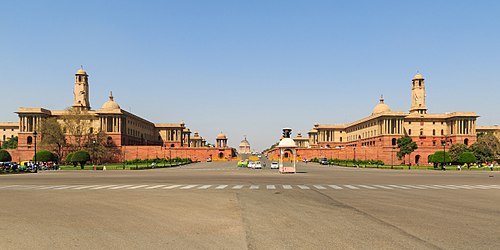
BILATERAL ISSUES ISRAEL Raksha Mantri Shri Rajnath Singh and Israeli Defence Minister telephon.....
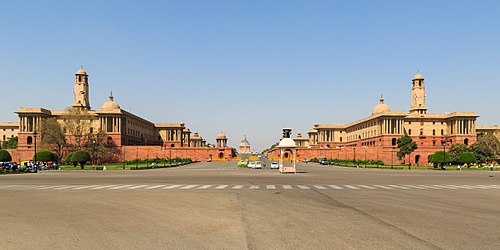
BILATERAL ISSUES IRAN Indian Navy Commences evacuation of citizens from Islamic Republic of Ir.....
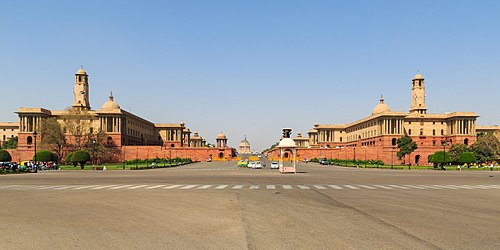
BILATERAL ISSUES EGYPT Phone call between Prime Minister Shri Narendra Modi and His Excellency.....
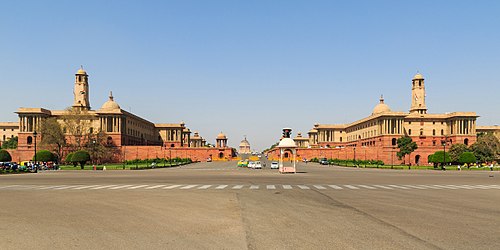
BILATERAL ISSUES BAHRAIN Telephone Conversation between PM and King of the Kingdom of Bahrain,.....
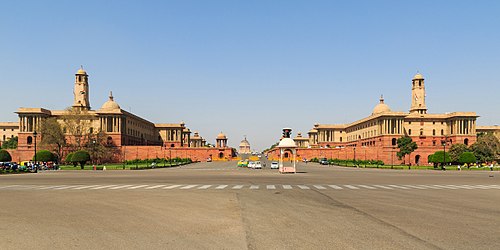
BILATERAL ISSUES IRAN IAF C-17 ‘Globemaster’ takes off for Iran, New Delhi, 9 Marc.....
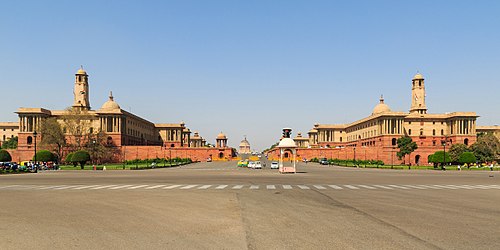
BILATERAL ISSUES IRAQ Travel Advisory for Indian Nationals travelling to Iraq, New Delhi, 19 F.....
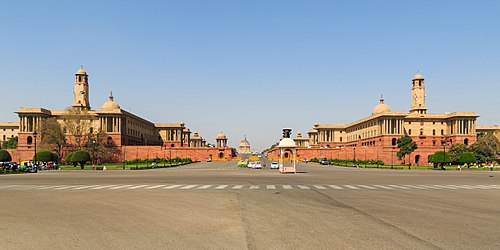
BILATERAL ISSUES EGYPT Photo exhibition on “Making of Indian Constitution and Life of Dr.....
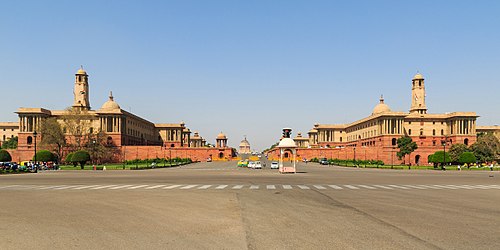
BILATERAL ISSUES EGYPT Prize Distribution Function of “Glimpses of India” Painting.....
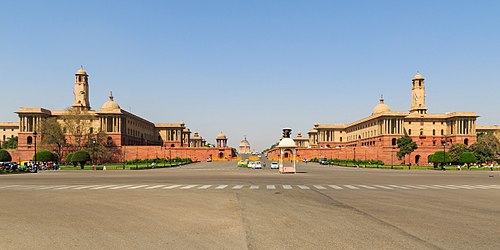
BILATERAL ISSUES EGYPT Consular Camp in Port Said on 22 November 2019, Cairo, 19 November 2019.....
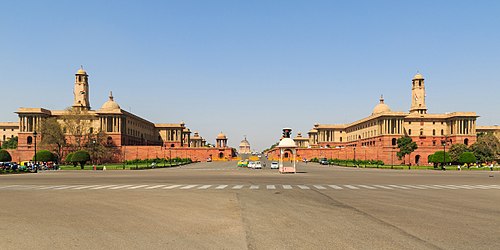
BILATERAL ISSUES JORDAN Meeting between Prime Minister and King of Jordan in Riyadh, Riyadh, 2.....
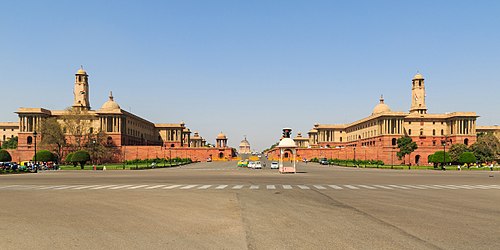
BILATERAL ISSUES a. IRAN Foreign Office Consultations between India and Iran, Tehran, 16 Septe.....
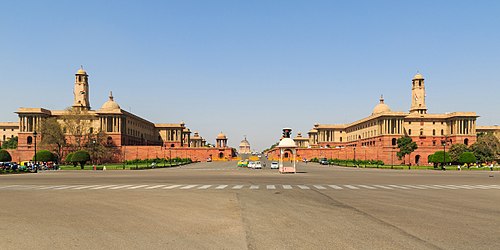
BILATERAL ISSUES a. BAHRAIN State Visits of Prime Minister to Bahrain (August 24-25, 2019), Ne.....
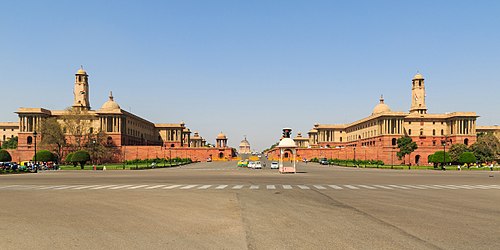
BILATERAL ISSUES BAHRAIN Cabinet approves Memorandum of Understanding between India and B.....
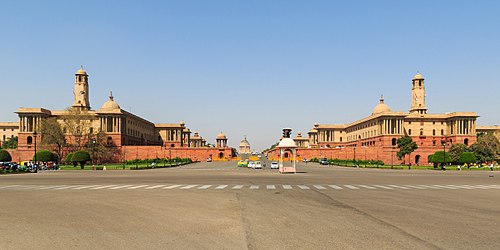
BILATERAL ISSUES IRAN UNSTARRED QUESTION No. 662 MPACT OF AMERICAN BAN ON CHABAHAR PORT, Rajya.....
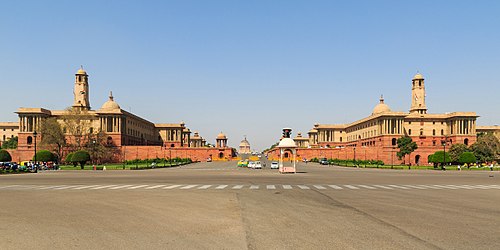
BILATERAL ISSUES IRAN 11th India Iran Joint Consular Committee Meeting (JCCM), New Delhi, 16 M.....
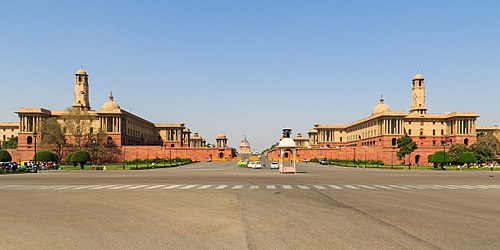
IRAN India extends relief assistance to Iran after recent floods, Tehran, 17 April 2019 In lin.....
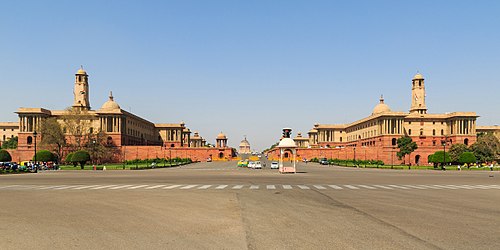
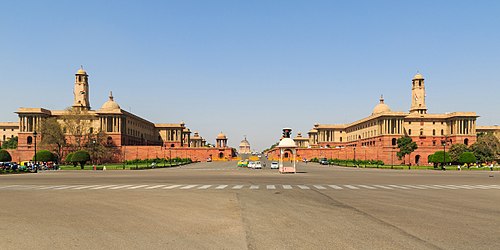
BILATERAL ISSUES EGYPT India condemns terrorist attacks in Egypt, New Delhi, 22 February 2019 .....
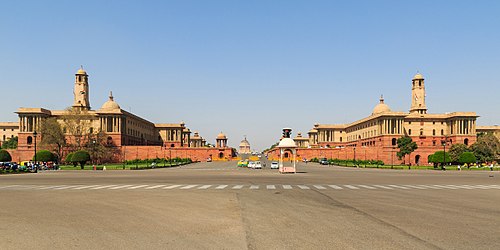
BILATERAL ISSUES ALGERIA Visit of Foreign Minister of Algeria to India (January 30-February 01.....
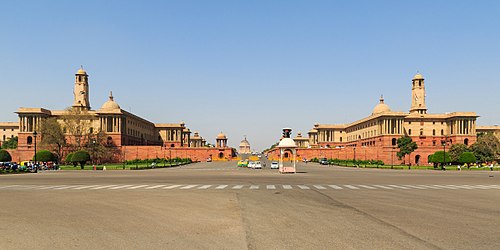
ALGERIA Cabinet approves Agreement between India and Algeria on Cooperation in the field of Space.....
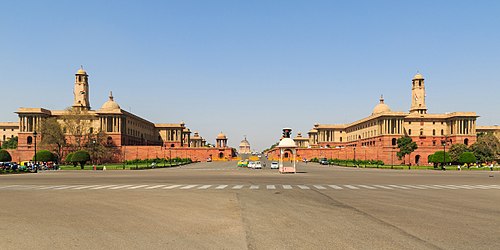
BILATERAL ISSUES IRAQ Jaipur Foot Camp in Karbala, Karbala, 21 November 2018 A 40-day Artif.....
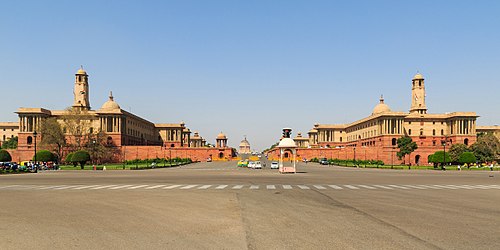
BILATERAL ISSUES KUWAIT Visit of External Affairs Minister to State of Qatar and State of Kuwa.....
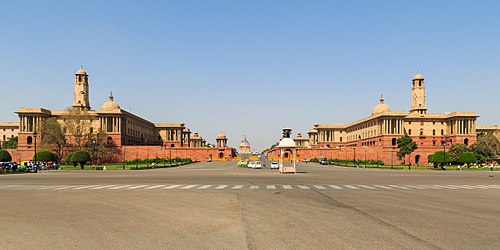
BILATERAL ISSUES EGYPT Cabinet approves MoU between India and Egypt on cooperation in the fiel.....
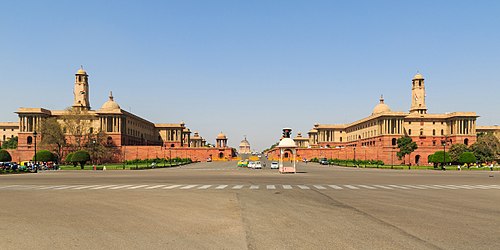
BILATERAL ISSUES BAHRAIN Question No. 3566, Unpaid Workers in Bahrain, Lok Sabha, New Delhi, 0.....
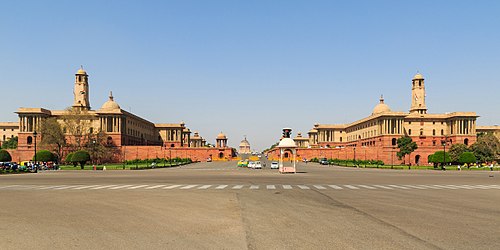
BILATERAL ISSUES BAHRAIN Visit of External Affairs Minister to Manama, Bahrain (July 14-15, 20.....
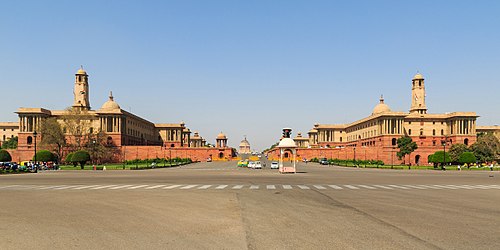
BILATERAL ISSUES BAHRAIN Cabinet approves MoU between India and Bahrain on cooperation in the .....
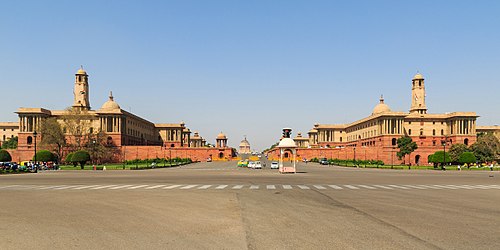
BILATERAL ISSUES IRAN External Affairs Minister’s meeting with Iranian Foreign Minister,.....
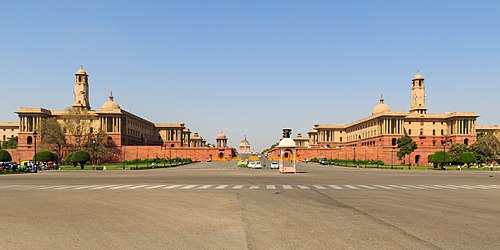
BILATERAL ISSUES IRAN Cabinet approves MoU between India and Iran on the establishment of an e.....
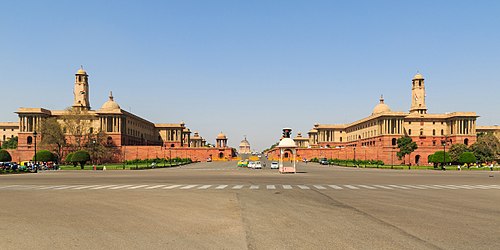
(Monthly Digest of Official Indian Statements on Middle East) BILATERAL ISSUES EGYPT Mr. Sa.....
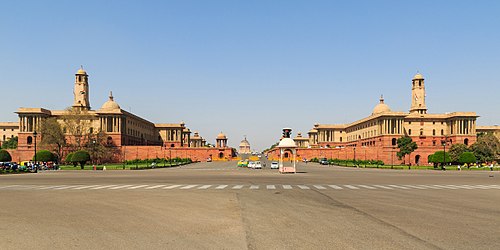
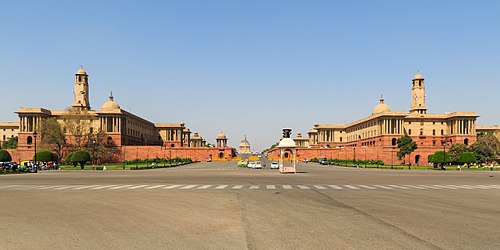
(Monthly Digest of Official Indian Statements on Middle East) BILATERAL ISSUES IRAN Launch .....
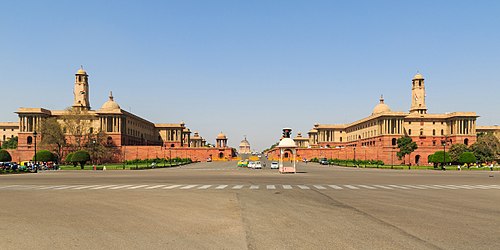
(Monthly Digest of Official Indian Statements on Middle East) BILATERAL ISSUES &.....
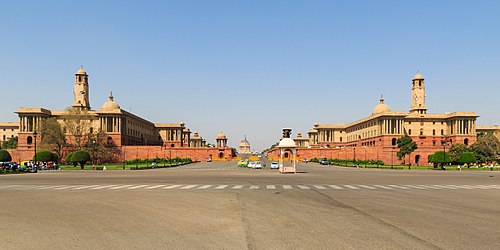
BILATERAL ISSUES a. EGYPT 1. H.E. Col. Rajyavardhan Singh Rathore, Minister of State for Youth.....
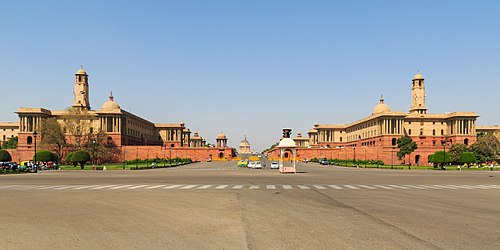
BILATERAL ISSUES a. IRAQ 1. India’s position on the Referendum held in the Kurdistan Reg.....
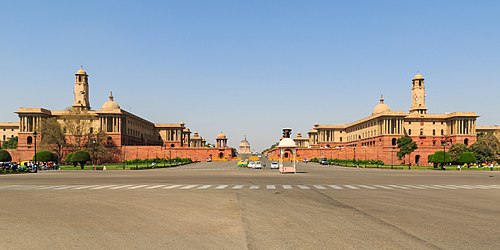
BILATERAL ISSUES IRAN 1. 6th Meeting of Joint Committee on Ports and Maritime Cooperation.....
